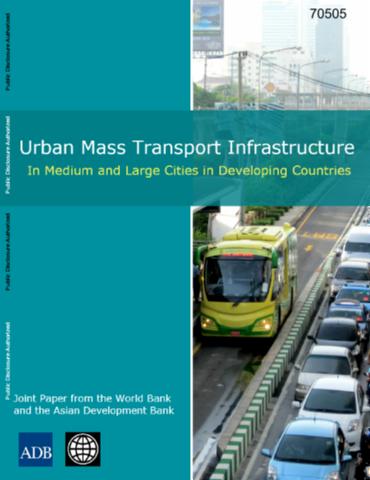Resource information
Developed at the request of the Mexican G20 Presidency for consideration by the Finance Ministers and Central Bank Governors at the G20 Leaders' Summit in Mexico, and jointly prepared with the Asian Development Bank, this policy paper positioned green transport in the context of cities development. Urban transport determines the shape of a city and its ecological footprint. Many cities in low and middle income countries are at a crossroads. Policy decisions taken now, while car use is still relatively low and cities retain a relatively transit friendly, compact urban form, will affect how people will live in their cities for many decades into the future. A new paradigm of urban transport can be part of the solution to reversing the deteriorating situation in some cities of developing countries, and supporting others to embark on a sustainable, low carbon, green growth path: developing a city for people rather than cars, and including public and mass transport as a major component of the modal structure. Implementing such a new paradigm can be truly transformational. This joint World Bank and Asian Development Bank paper lays out six aspects, which are most difficult to align, yet, are critical to ensure the sustainability of urban transport systems, visionary leadership, integrated strategy for land use and urban transport, coordination among agencies, domestic capacity, adequate cost recovery, and private participation in the operation and construction of urban transport systems. The paper proposes a set of new initiatives for G20 leaders' consideration, including the development of an umbrella toolkit to guide policy makers in charge of urban planning to make transport decisions best suited to their local contexts.



